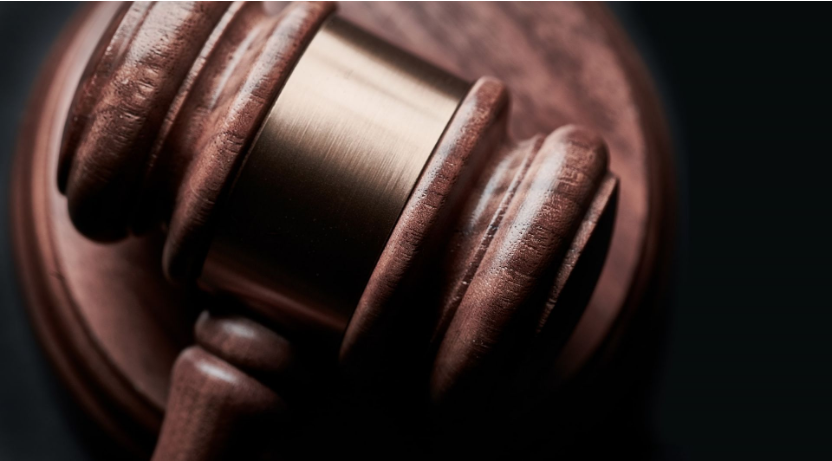CEO Insight: SDG 16, Honouring Nelson Mandela’s Legacy

Earlier this month, on July 18th, the world came together to remember the profound impact of Nelson Mandela and his unwavering dedication to justice. His anti-apartheid activism has left an indelible mark, inspiring and guiding our pursuit of a fair and just world.
Mandela’s legacy is a beacon that continues to inspire and instruct our pursuit of justice, setting a remarkable example of resilience and determination. During his 27 years in prison, he catalysed global prison reforms while relentlessly advocating for the human rights of all, even from behind bars.
To this day, Mandela’s vision resonates across the globe, influencing human rights policies and inspiring movements toward inclusive, non-discriminatory societies. The UN’s ‘Nelson Mandela Decade of Peace’ (2019 – 2028) aligns with Mandela’s principles and is firmly embedded in the Sustainable Development Agenda (SDGs) (SDGs). SDG 16, dedicated to Peace, Justice, and Strong Institutions, echoes the values at the core of Mandela’s efforts against racism and for equality, calling for effective transparent institutions and non-discriminatory laws and policies.
The UN’s Adoption of The Mandela Rules
One of Mandela’s greatest contributions to the world of justice is the Mandela Rules, a set of principles promoting humane conditions for prisoners. During his imprisonment, Mandela devoted himself to legal studies, familiarising himself with legal rights and tirelessly advocating for improved treatment of prisoners. Mandela saw his firsthand experiences and observations of the dire conditions endured by black prisoners, as directly linked to the apartheid who were often treated like mere ‘cattle,’; the prison work and hunger strikes organised by Mandela and his comrades in 1966, led to transformative changes in the treatment of black prisoners.
In 2015, the UN officially adopted the Mandela Rules, outlining obligations to uphold the inherent dignity of all prisoners as human beings. These rules mandate access to medical and health services, legal representation, and training for prison staff to ensure best practices when dealing with vulnerable groups. Crucially, they underscore the notion that prisoners remain part of wider society, promoting social cohesion and recognising their potential for growth and positive contributions even while incarcerated.
Prison Conditions across Africa Today
Despite the progress made since the adoption of the Mandela Rules, challenges persist, particularly concerning prison overcrowding. Over 121 countries and territories are operating above official capacity, some at levels of 250%, leading to life-threatening conditions and hindering proper prison functioning. Prison conditions across Africa are particularly challenging. Solitary confinement, inadequate healthcare, and the spread of infectious diseases which have higher prevalence rate in prisons.
Overcrowding not only jeopardises lives but also hampers effective rehabilitation and educational programmes, hindering prisoners’ reintegration into society upon release. The roots of this issue lie in poor criminal justice policies rather than rising crime rates, where Conditions in African prisons remain some of the poorest in the world, and they are deeply entrenched in Africa’s colonial past, with prisons above capacity since their inception. Moreover, resource scarcity across the continent has long hindered much-needed prison reforms. High rates of pre-trial detention and overuse of prison sentences for minor offences, contribute to severe overcrowding, highlighting the need for trained judges and proper legal representation. Recent reports into prison conditions in Nigeria have shown over 60% of prison admissions, are still awaiting trial.
The issue of police brutality further compounds problems in the justice sector, particularly in South Africa, where cases of brutality are alarmingly high, with over 5,500 cases reported each year. Suspects are often brutally beaten, even when not resisting arrest, in order to intimidate and instil fear. And 95% of cases of police brutality end with no sanctions against the officers, allowing the practice to continue. Such acts undermine trust between communities and law enforcement agencies, perpetuating conflict and mistrust. Police brutality in South Africa is systemic of its complex history, as the police are primarily seen as a repressive force, used to control a population or protect the interest of a particular group. Addressing this issue requires reimagining the role of the police force as protectors of all society, rather than a repressive entity serving elite interests. By promoting respect, transparency, and accountability, we can pave the way for a more just and harmonious society.
Policy Recommendations
To address these challenges, legal professionals, have a vital role to play in advocating for change. Our collective efforts can bring about transformative change, just as Mandela’s unwavering determination did. Let us therefore stand united in the pursuit of justice by:
- Reconceptualising the role of the police force as protectors of all citizens, diffusing tensions, and combating police brutality in communities worldwide.
- Ensuring that training programmes for prison guards are comprehensive and accessible, tackling deeply ingrained beliefs about the worth of prisoners and promoting humane treatment.
- Advocating for and investing in non-custodial alternatives to detention, such as rehabilitation programmes and community service, to reduce prison overcrowding and foster prisoners’ reintegration into society.
Improving access to justice is pivotal in ensuring a cohesive society, fair trials, and reduced prison overcrowding. The legal community has the power to drive positive change, and collaborative initiatives, like the work facilitated by A4ID in Gambia, providing technical expertise and resources to strengthen judicial systems and promote consistent sentencing guidelines thereby promoting the rule of law and sustainable development. Through such collaborations, we can empower the justice system to operate more effectively and equitably.
As we commemorate Nelson Mandela’s sacrifices this month, let us unite in building a world that truly honours his legacy. Let us recognise the inherent worth and rights of every individual and strive to alleviate hardships and uphold justice for all. Together, we can continue the profound impact of Nelson Mandela’s advocacy and create a brighter and more equitable future for generations to come.

